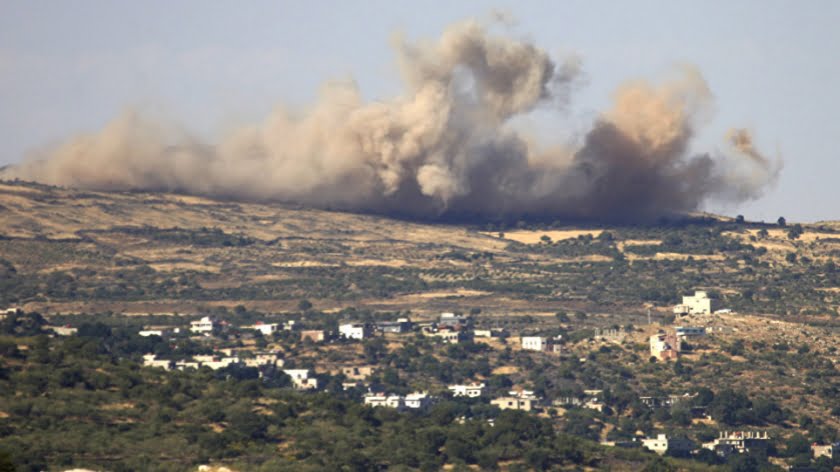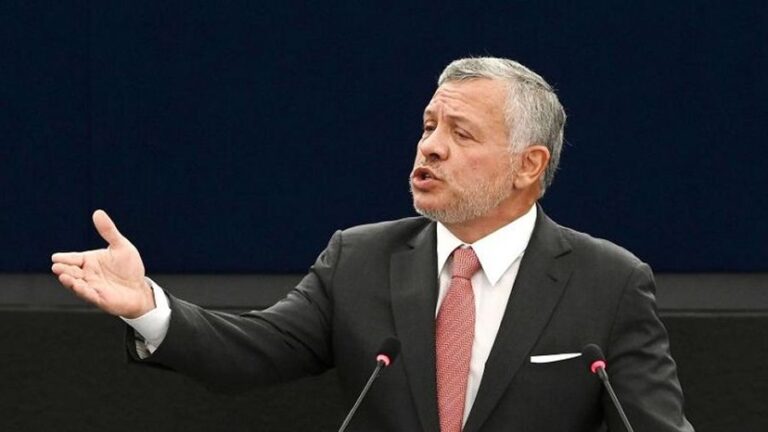Yemen: Saudi Arabia’s Deadly War That Sees No End
With third year into it, Saudi Arabia’s Yemen campaign is far from over, let alone leave an impact on the ground. This said, still if the House of Saud’s campaign has done anything, it is mostly in terms of destroying Yemen, creating one of the worst humanitarian crisis ever. And, there is no end to this campaign—a campaign notoriously known to have been making little to no distinction between combatants and non-combatants, children or adult, men or women. The kingdom’s recent air strike that killed children and the subsequent regret that it expressed over this loss shows just how in-human the campaign has become, reduced to one simple regret which is nothing more than a hypocritical acknowledgment of what the campaign has been from the very beginning: deadly. Will the self-declared and self-eulogized ‘defenders’ of human rights and democracy based in the West make sure that the campaign comes to an end and that the kingdom’s strings are pulled? It seems unlikely to happen because they’re profiting from this war by selling weapons to the wagers.
With intense infighting going on in Yemen, peace appears as elusive as it was few months ago when a ‘truce’ had been established between the warring parties. As I had pointed out then in one of my pieces written for NEO, peace in Yemen cannot be achieved for as long as the US continues to act as Saudia’s life-line and provide weapons worth billions of dollars. The truce, as expected, couldn’t hold and the war has continued in an unabated fashion. And, it will continue unless the kingdom can ensure its victory.
Ground realities, however, show that victory for the kingdom, despite its superior military force and despite having the support of the US and other Arab allies, is not forthcoming. A confidential report of the UN has revealed that the kingdom is failing badly. According to the reported content of the report, “The Saudi Arabia-led coalition strategic air campaign continues to have little operational or tactical impact on the ground, and is only serving to stiffen civilian resistance.” And, as far as the position of Yemen’s internationally recognized government is concerned, the report says that several of his ministers have broken ranks and that they have also established a parallel administration in southern Yemen, posing a direct challenge to Hadi who is already deeply beset by the combined forces of Saleh and the Houthis. The new council, called South Transitional Council, established in the south of Yemen has significant support in the military, and is posing a direct threat to Hadi and is even capable of deposing him from within.
This, however, has not led the House of Saud to immediately buttress the position of their allies. On the contrary, they seem content with co-opting the ‘king in the south’ in their fight against the Houthis to defeat the so-called “Tehran project.” The head of the council, Aidarous al-Zubaidi’s visit to Saudi Arabia, UAE and Egypt did not only confirm his credentials as an ally of the kingdom, but also put his own political and ideological inclinations very much in line with that the of Arab coalition at large. However, while the Saudis may have found in Zubaidi a new ally, it is unlikely to translate for them into a source of strength, capable of re-orienting their strategic campaign and turn the utmost failure into a success. The reasons are manifold.
For instance, despite the reported rift between the forces of Saleh and the Houthis, and despite Saudi Arabia’s capture of Mokha, the Houthi-Saleh alliance still holds as much territory as it did a year ago, and it exercises control over 80 percent of the Yemeni population. The United States, the kingdom’s principle ally, has refrained from directly attacking the Houthis and Saleh’s forces, leaving it completely to the kingdom to conduct its campaign. This, however, doesn’t mean that the US isn’t involved in Yemen. Not only is the US selling weapons to the kingdom for use in Yemen and earning billions, it has also stepped up its own drone attacks in Yemen against al-Qaeda. As a matter of fact, since the start of this year, the US warplanes and unmanned drones have conducted more than 100 bombing raids in the first half of 2017, up from 30 the previous year. This is directly contributing to creating further deterioration in Yemen. The UN is already conducting an investigation if the US strikes have targeted civilians, and if the collateral damage done is contributing to the proliferation of rebels and other militias. Proliferation is nonetheless still taking place.
While we are yet to see such an investigation, what has already become quite apparent in terms of things, actions and policies contributing to Saudia’s failure in Yemen is the fact that the kingdom itself, more than any other power, has put itself at the helm of proliferating violent militias in Yemen as a means to achieve what its own forces couldn’t. The UAE is reported to have funded and trained numerous local security forces, including the Security Belt Forces, Hadrami Elite Force, which was established to challenge Al Qaeda military base in Yemen. “The authority of the legitimate government is also being challenged by the proliferation of militia groups, many of whom receive direct funding and aid form either Saudi Arabia or UAE,” UN report noted, adding further that “The use of proxy forces, operating outside a government hierarchical structure, is creating an accountability gap for grave violations that may account to war crimes.”
The kingdom and its allies are, therefore, breeding violence to further destabilize the country and remain the context of direct and indirect interventions alive. Strikes are regrets are unlikely to pave the way for an end to a serious humanitarian crisis. At least, the kingdom’s actions don’t testify to this end.
On the contrary, it seems to be willing to play the long game through creating a buffer zone inside Yemen, the UN reported noted. The strategy is clear: by inserting their funded and trained militias in Yemen, the kingdom and its allies seem to be willing to partly pull themselves out of the conflict and allow the situation to be indirectly controlled and relatively cheaply financed. The new strategy of spreading proxy groups perfectly explains why Saudia’s crown prince, Muhammad Bin Salman, was reported to have told US officials the kingdom’s willingness to pull out. In actual terms, this yet-to-happen pull out wouldn’t end the war; it will change its direction, make it even less accountable, and much more deadly for the Yemenis.
By Salman Rafi Sheikh
Source: New Eastern Outlook







